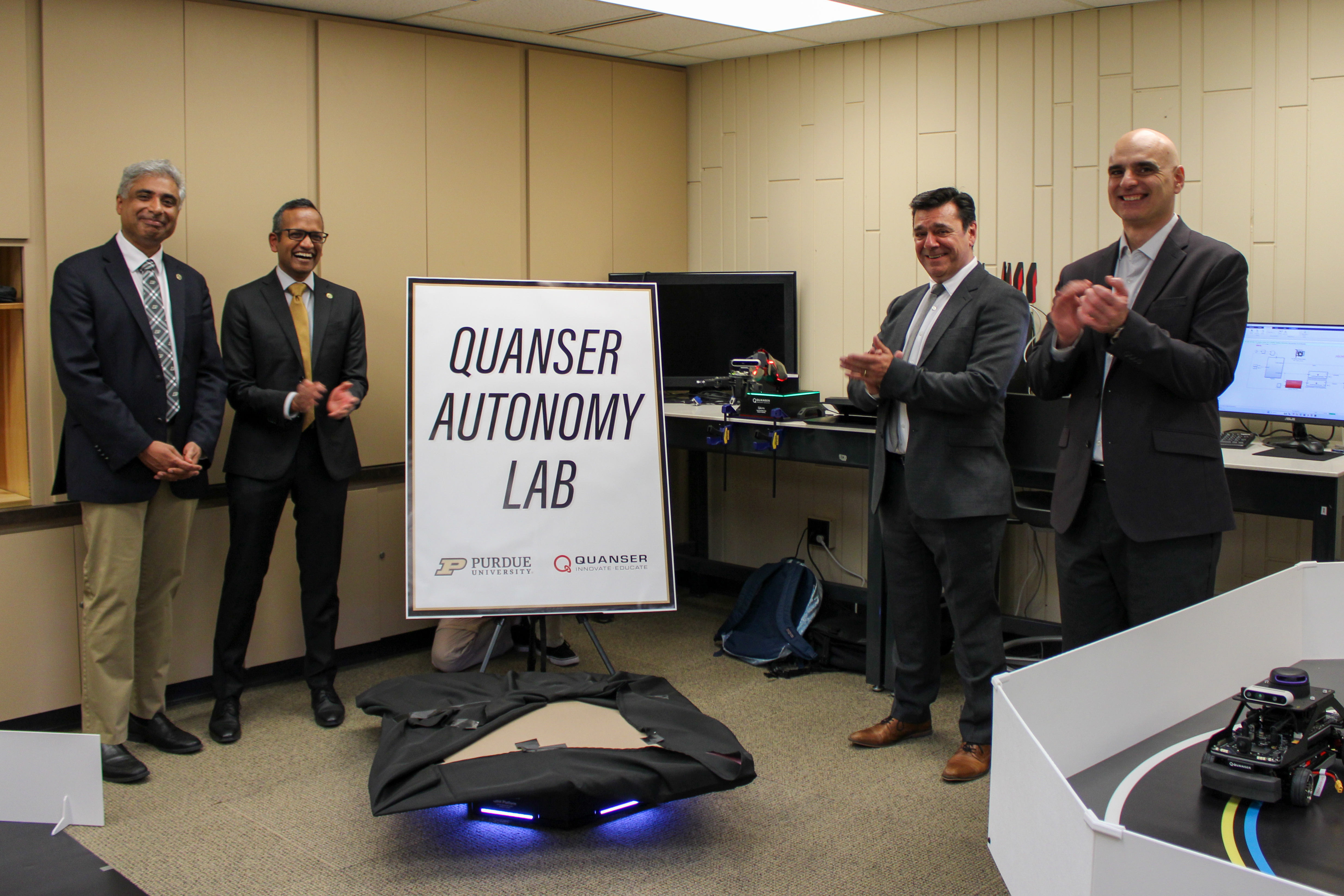Purdue-Quanser partnership to expand autonomous and connected systems education for engineering students

The College of Engineering, along with partner Quanser, celebrated the launch of the new Quanser Autonomy Lab during a ribbon cutting on May 14.
Technology developed by the Canadian-based company powers labs in more than 2,500 academic institutions around the globe. This collaboration will provide Purdue Engineering students interested in autonomous and connected systems (ACS) unique, real-world experiences, offered on a larger scale, and accelerate research in this growing field.
This facility will position Purdue as the premier institution for autonomy education in the country, said Milind Kulkarni, the Michael and Katherine Birck Head and Professor in the Elmore Family School of Electrical and Computer Engineering, and academic lead for the Robert H. Buckman College of Engineering Online Education Program.
“The lab, which has autonomous cars and robots and robotic arms, is being used to support both residential and online classes in the ACS master’s degrees. A key component of this is that the lab is backed by an innovative digital twin environment that lets our online students experiment with autonomy even if they can’t be physically in the lab,” Kulkarni said.
Shreyas Sundaram, the Marie Gordon Professor of Electrical and Computer Engineering, helped initiate the partnership and is leading the effort to develop new courses, “which will feature lectures by leading Purdue Engineering faculty, combined with a unique virtual laboratory created by Quanser that will allow students to experiment with concepts they learn in lectures.”
Sundaram also serves as co-director of the Institute for Control, Optimization and Networks (ICON), which facilitates the three ACS master’s programs that will be augmented through the Quanser partnership.
“These virtual labs will provide real-world scenarios modeled within an easy-to-use simulator with high-fidelity graphics,” Sundaram said.
Quanser has spent more than 35 years collaborating with universities worldwide. The company has introduced diverse hands-on teaching laboratory ecosystems and content for modern engineering education, along with open-architecture research platforms and infrastructure for robotics, applied AI, autonomous systems, and mechatronics.
